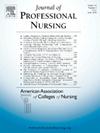Key components of holistic admission in schools of nursing: A scoping literature review
IF 2.9
3区 医学
Q1 NURSING
引用次数: 0
Abstract
Background
Admission to nursing programs traditionally focuses on academic metrics. However, this approach fails to capture the full range of qualities that make a successful nurse. Overemphasis on academic metrics can exclude students with qualities like empathy and communication skills but may not have the highest grades.
Purpose
The purpose of this work was to identify key components of holistic admission being utilized in pre-licensure, undergraduate nursing programs.
Methods
A scoping literature search was conducted using multiple databases, examining peer-reviewed studies published between 2003 and 2023 on holistic admission in U.S. nursing programs. The PRISMA process guided this review, and the QI-MCS appraisal tool was used to review included articles.
Results
Ten quality improvement projects met inclusion criteria and described use of holistic admission implementations across nursing programs. Characteristics beyond academic metrics included experiences, attributes, and potential for contributions to nursing. Long-term outcomes, student support strategies, graduating cohort diversity data, and overall attrition rates were missing.
Conclusion
Holistic admission considers a range of qualities that contribute to the nursing workforce. This review highlights the need for standardizing holistic admission to optimize effectiveness, increase adoption across nursing programs, and develop best practices to support students after holistic admission.
护理学校整体录取的关键组成部分:范围文献综述
传统上,护理项目的使命主要集中在学术指标上。然而,这种方法未能捕捉到成为一名成功护士的全部素质。过分强调学术指标可能会把那些具有同理心和沟通技巧等品质的学生排除在外,但这些学生的成绩可能不是最高的。目的本研究的目的是确定整体录取的关键组成部分,这些组成部分被用于护理学本科预科课程。方法使用多个数据库进行范围文献检索,检查2003年至2023年间发表的关于美国护理项目整体入院的同行评审研究。PRISMA流程指导了本次审查,并使用QI-MCS评估工具对纳入的文章进行审查。结果10个质量改进项目符合纳入标准,并描述了在护理项目中使用整体入院实施。学术指标之外的特征包括经验、属性和对护理的潜在贡献。缺少长期结果、学生支持策略、毕业队列多样性数据和总体流失率。结论整体录取考虑了护理人员的一系列素质。本综述强调需要标准化整体录取以优化有效性,增加护理项目的采用,并制定最佳实践来支持整体录取后的学生。
本文章由计算机程序翻译,如有差异,请以英文原文为准。
求助全文
约1分钟内获得全文
求助全文
来源期刊
CiteScore
4.80
自引率
8.00%
发文量
153
审稿时长
52 days
期刊介绍:
The Journal will accept articles that focus on baccalaureate and higher degree nursing education, educational research, policy related to education, and education and practice partnerships. Reports of original work, research, reviews, insightful descriptions, and policy papers focusing on baccalaureate and graduate nursing education will be published.

 求助内容:
求助内容: 应助结果提醒方式:
应助结果提醒方式:


